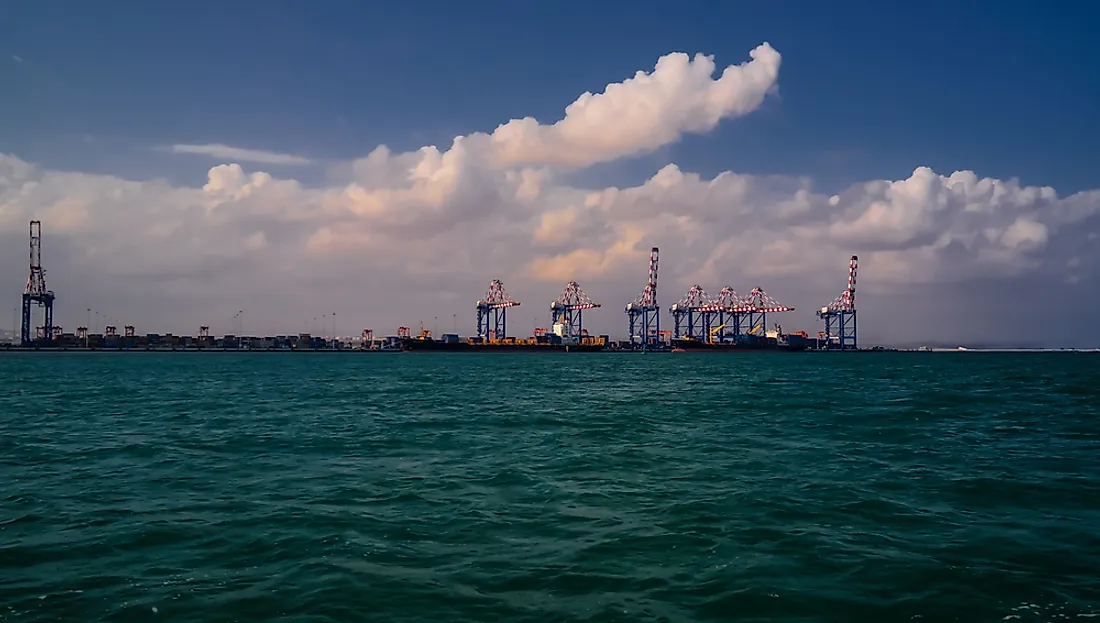What Are The Biggest Industries In Djibouti?

Djibouti is a small country on the Horn of Africa bordering Ethiopia in the east and north, Eritrea in the south, Somali in the northwest, and the Gulf of Eden and the Red Sea at the west. The country is strategically situated near some of the largest shipping lanes, controlling access to the Indian Ocean and the Red Sea. Djibouti is a key maritime port for both imports and exports to Ethiopia.
Economy of Djibouti
The economy of Djibouti has largely been promoted by its strategic location on the Red Sea. Being a barren country with little agriculture and industrial activities, the economy has largely concentrated on the service sector. Djibouti has a harsh climate, limited natural resources, and unskilled labor. The growth has also been slowed down by the civil war experienced in the country between 1991 and 1994 which had devastating effects on the economy. However, the country has witnessed improvement in macroeconomic stability, with annual GDP improving at an average of 3% from 2003. Despite the promising growth, Djibouti still faces several economic challenges including unemployment and poverty. The rate of unemployment is at 43% and is the main cause of poverty in the country. The high unemployment rate is a result of the lack of well-developed industries that can offer employment. The available industries have low production capacity and can only offer few jobs. Here are some of the industries in Djibouti.
Service Industry (Port Services)
Djibouti has recorded very little development in the agricultural and industrial sectors, partly due to its barrenness and lack of sufficient skilled labor. However, its strategic location connecting the Gulf of Eden and the Red Sea is probably its main economic asset. Djibouti is a port country with a state-of-the-art port complex which is one of the most sophisticated in the world. The port provides services as both a transit port and an international transshipment and refueling center. The service sector, which is largely port services accounts for about 79.7% of the GDP and about half of the total formal workforce. The facilities of Port of Djibouti is used by several landlocked countries to re-export their goods. Thus, the county earns harbor fees and transit taxes from these trades, forming the bulk of government revenue. The container terminal at the port handles the bulk of the country’s trade. Trade through the port is expected to grow in parallel with the expanding economy of Ethiopia (main trading partner). The major threat to the port services is the pirates patrolling the Gulf of Eden with the intention of capturing cargo ships. To deal with this threat, large nations such as the US, Japan, and France have embedded military camps from where they can defend their freight.
Fishing
Djibouti has 1,883 square miles of territorial water and an Exclusive Economic Zone extending for some 2,700 square miles and the total surface area of water under its control is about 38,610 square miles. Because of such a large water resource, Djibouti’s fishery industry is evolving into a major sector (only behind foreign investment and port activities). Compared to other sectors of agriculture, the fisheries sector is the only sector not affected by climatic changes. However, its potential remains largely untapped. The fishery sector is still underdeveloped and its contribution to the GDP is still very low. The country has no large scale industrial fisheries. Fishing is mainly done on a small-scale and by use of basic equipment. Although the current fish production is approximately 2,500 metric tons per year, the country has the potential to sustain 35,000 metric tons per year. The huge difference between the potential and actual production is as a result of lack of enough fishing crafts, processing and storage facilities, and inadequate distribution networks. In Djibouti, the fishing industry has permanently employed 3,000 people. The marine water has enough fish stock to make Djibouti self-sufficient in fish. The country is also a fishing port which benefits fishers in several ways including access to production credit and protection from pirates. Djibouti mainly exports its fish to the European Union market.
Tourism
The tourism sector is one of the fastest growing sectors in Djibouti, with about 70,000 arrivals every year, generating US$ 21 billion. Almost half of the visitors come from France and another 20% arriving from other European countries. Most of the tourists visiting the country are friends and families of the soldier stationed at the military base. The tourism industry in Djibouti is regulated by the Ministry of Tourism and Commerce. The country has numerous attractions consisting of national parks, historic sites, mountain ranges, and beaches. The darkened steep cliffs near the western end of the Gulf of Tadjoura is one of the most popular sites in the country. Another popular site is the Day Forest National Park which conserves the rare trees on Mount Goda. However, the principal tourist destination is Djibouti City. The development of the tourism industry has been slowed by the poor infrastructure which makes it difficult for tourists to travel independently and the high cost of private tours.











